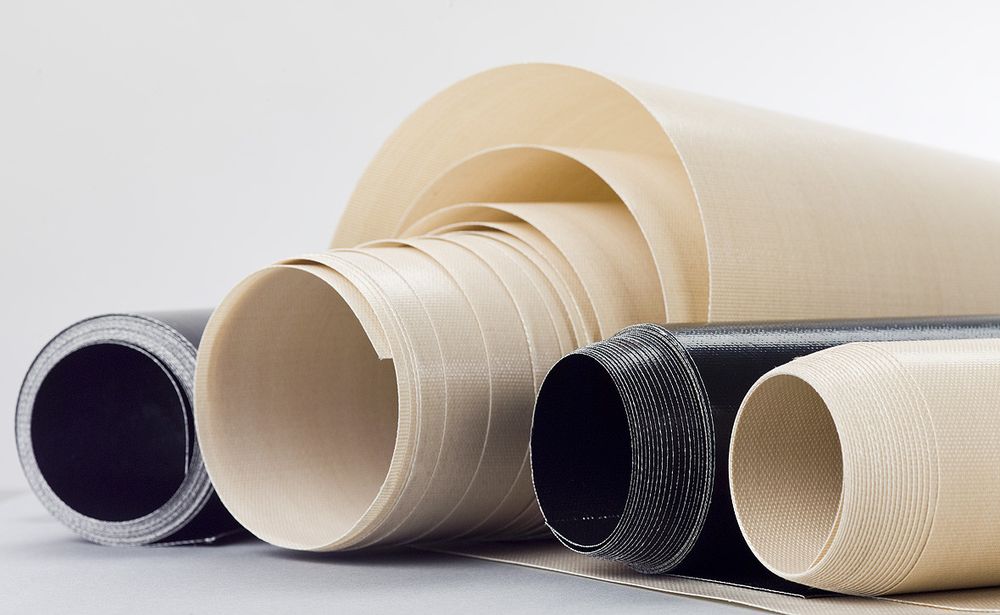Top 10 Industrial Applications of PTFE Coated Fabrics
PTFE fabric has become a reliable choice across various industries, thanks to its unique combination of properties. Known for its non-stick surface, resistance to high temperatures, and chemical inertness, PTFE fabric offers solutions to challenges in manufacturing and processing environments. Its versatility allows it to be used in applications ranging from food processing to electronics, providing durability and efficiency where needed most.
What Are PTFE Coated Fabrics?
PTFE coated fabrics are materials that combine the strength of woven fiberglass or other substrates with a coating of polytetrafluoroethylene (PTFE). This combination results in a durable fabric that is resistant to various environmental factors.
The PTFE coating provides a smooth, non-stick surface, making it ideal for applications where materials need to move freely without sticking. Additionally, these fabrics can withstand a wide range of temperatures and are resistant to chemicals, making them suitable for harsh industrial environments.
The Main Benefits of PTFE Fabrics
PTFE fabrics offer several advantages that make them suitable for industrial applications:
- High Temperature Resistance: PTFE fabric can withstand continuous temperatures up to 260°C (500°F), making it ideal for extreme heat processes. This resistance ensures longevity and consistent performance in high-temperature environments.
- Chemical Inertness: The chemical resistance of PTFE fabric allows it to function effectively in corrosive environments, such as chemical processing plants. It resists degradation from acids, bases, and solvents, maintaining its integrity over time.
- Non-Stick Surface: The non-stick properties prevent materials from adhering to the fabric, facilitating easy cleaning and reducing downtime. This feature is particularly beneficial in the food processing and packaging industries.
- Low Friction Coefficient: PTFE fabric exhibits a low coefficient of friction, reducing wear and tear on machinery components. This property enhances the efficiency and lifespan of equipment.
- Electrical Insulation: With excellent dielectric properties, PTFE fabric serves as an effective insulator in electrical applications. It prevents current leakage and ensures safety in electronic components.
- Dimensional Stability: The fabric maintains its shape and size under mechanical stress and temperature variations, ensuring consistent performance in dynamic environments.
Read: What Is PTFE Coating: Applications and Advantages in Various Industries

Top Industrial Applications of PTFE Coated Fabrics
The versatility of PTFE coated fabrics is evident in their widespread use across multiple industries. Their unique properties address specific challenges, improving efficiency and product quality.
1. Food Processing
In the food industry, maintaining hygiene and efficiency is paramount. Due to their non-stick properties and compliance with food safety standards, PTFE fabrics are employed in conveyor belts, baking sheets, and packaging materials. Their resistance to high temperatures ensures consistent performance during cooking and processing, while their easy-to-clean surface minimizes contamination risks.
2. Packaging Lines
Packaging processes often involve heat sealing and require materials that can withstand high temperatures without sticking. PTFE fabric release sheets provide a non-stick surface that ensures smooth operation of heat-sealing machines and conveyor belts. This enhances the efficiency of packaging lines and reduces maintenance needs.
3. Textile Manufacturing
Textile manufacturing processes like drying and lamination benefit from the heat resistance and smooth surface of PTFE fabrics. They facilitate uniform drying and prevent fabrics from sticking during lamination, leading to higher quality products and reduced production issues.
4. Chemical Industry Applications
The chemical industry deals with aggressive substances that can degrade conventional materials. PTFE fabrics are used in gaskets, seals, and linings due to their chemical inertness, providing long-lasting protection and maintaining the integrity of equipment exposed to corrosive chemicals.
5. Composite Manufacturing
In composite manufacturing, materials must often be released from molds without damage. PTFE fabric release films offer a non-stick surface that ensures easy removal of composite parts, improving surface finish and reducing defects. Their thermal stability also supports curing processes at elevated temperatures.
6. PTFE Fabric in Electronics
Electronics require materials that can insulate components effectively. Thanks to their excellent dielectric properties and resistance to high temperatures, PTFE fabrics serve as insulating materials in applications like cable wraps and circuit boards. This ensures the reliability and safety of electronic devices.
7. Solar Panel Production
In solar panel manufacturing, PTFE fabric belts are integral to lamination processes. They act as non-stick release sheets, preventing materials like EVA film from adhering to laminator surfaces. Their ability to withstand temperatures up to 260°C ensures consistent performance during high-heat operations. This durability contributes to efficient production and high-quality solar modules.
8. Printing
The printing industry uses PTFE fabric to ensure consistent print quality in drying and curing ovens. Its smooth, non-stick surface prevents ink and substrates from sticking during high-temperature processes. This property facilitates easy cleaning and maintenance, reducing downtime. Additionally, its thermal stability supports uniform curing across various print materials.
9. Medical Industry Uses
In medical applications, PTFE fabric is valued for its biocompatibility and non-reactive nature. It’s used in surgical drapes, implantable devices, and catheter coatings, where maintaining sterility is paramount. Its resistance to chemicals and ease of sterilization help prevent contamination. These characteristics make it a reliable choice for various healthcare settings.
10. Aerospace Applications
The aerospace sector employs PTFE fabric for insulation and protective covers due to its lightweight and durable properties. It withstands extreme temperatures and resists chemical exposure, making it suitable for harsh environments. Applications include insulation for wiring and components and protective layers for various aircraft parts. Its reliability under demanding conditions supports the safety and efficiency of aerospace operations.
Elevate Your Operations with Smartech’s PTFE Coated Sheets
Understanding PTFE fabric’s diverse applications and advantages highlights its role in enhancing industrial processes across various sectors. At Smartech, we offer a range of PTFE Coated Sheets & Transport Belts designed to meet the specific needs of your operations. Our products are crafted to provide durability, thermal stability, and a non-stick surface, ensuring consistent performance and efficiency.
Explore our products to find the right solution for your application. Contact us to learn how Smartech’s PTFE coated fabrics can enhance your projects and operations.
Looking for More Information?
Check out our Resources or Contact Us
